How to Find the Best Dog Harness Size for Your Dog

At Highfive Pet, we believe every dog deserves gear that fits as well as your favourite trail boots. A proper harness fit isn’t just about looking sharp. It’s about comfort, control, and the confidence to explore Australia’s rugged trails, beaches, and bush walks together. Whether your pup is climbing rocky lookouts in the Grampians or jogging down Bondi’s promenade, here’s how to make sure their harness fits just right.
Why Getting the Fit Right is Everything
An adventure-ready harness is more than a leash attachment. The right fit can:
- Prevent painful chafing
- Stop escape artists in their tracks
- Keep your dog balanced and confident on the move
- Give you better handling in busy or unpredictable situations
Wrongly Fitted Harness

Correctly Fitted Harness

At Highfive, we field-tested our PawPlus™ Active Dog Harness with real Aussie dogs like Cooper the Border Collie on real terrain. Because there’s no compromise when it comes to safety and comfort.
How to Measure Your Dog for a Harness (And Actually Get it Right)
All you need is a soft tape measure (or string + ruler), a treat (or two) to keep them still and your dog standing, not sitting or laying down.

-
Step 1: Neck Girth - Wrap the tape around the base of their neck—right where a collar would sit. Not too high up, not down on the shoulders.

-
Step 2: Chest Girth (Most Important!) - Find the widest part of their chest, just behind the front legs. This is where the harness must hug the body snugly—but not tightly.
-
Step 3: Compare to Size Charts - Use your measurements against the Highfive size guide. If your dog’s in between, go up a size. Our VoyagerLite™ Strap Dog Harness and PawPlus™ both offer multiple adjustment points for a custom fit.
Consider Your Dog’s Shape, Not Just Size

Two dogs can weigh the same and need totally different harnesses. Here’s what to factor in:
- Deep-chested breeds (like Vizslas or Kelpies): Often need roomier chest panels and adjustable straps, exactly like what the PawPlus provides.
- Chunky shoulders or stocky frames (e.g. Staffies): Choose a harness that distributes weight evenly across the chest.
- Lean & long dogs (like Whippets): Go with a harness like VoyagerLite™, designed for agility and freedom of movement.
- Puppies or growing dogs: Adjustable and durable is key. Don’t size too snugly if they’ve got more growing to do.
Common Mistakes That Could Ruin Your Dog’s Walk
Even well-meaning dog parents get it wrong. Here are some of the biggest pitfalls:
- Guessing based on breed or age. Don’t do it. Measure, then compare.
- Choosing based on weight alone. Fit depends on chest and neck girth—not kilos.
- Buying bulky “do-it-alls.” Too much material can be hot, heavy, and restrictive.
- Not adjusting properly. All Highfive harnesses come with a step-by-step fit guide. Use it. Don’t skip fine-tuning.
📷 **Image Suggestion:** Overhead photo showing a poorly adjusted harness vs. properly fitted one (highlight strap adjustments)
How Tight Should It Be?
We use the Two-Finger Rule: snug enough that you can slip two fingers between the harness and your dog but not more.

Also some to check carefully too:
- Can your dog sit and lay down comfortably?
- Does the harness shift when they walk?
- Are there any red marks after a long walk?
Highfive’s PawPlus™ is built with 5-point adjustability and padded anti-chafe chest support, so you get a stay-put fit on mountain climbs, car rides, or even helping your senior dog up the stairs.
Signs Your Dog's Harness is the Wrong Size

Don’t ignore these clues:
- Redness or rubbed fur under armpits or chest
- Harness spins around when walking
- Dog backs out or slips a leg through
- Constant fidgeting, pawing at straps
- Dragging or pulling oddly on leash
Harness Size Guide by Breed

Selecting the right harness size is crucial for your dog’s comfort and safety during adventures.
Below is a general guide to help you determine the appropriate harness size based on your dog’s chest girth and breed. Remember, individual dogs may vary, so it’s essential to measure your dog’s chest girth for the most accurate fit.
|
Harness Size |
Chest Girth (cm) |
Chest Girth (inches) |
Common Breeds |
|---|---|---|---|
|
Small |
33–46 cm |
13.0–18.1 inches |
Pomeranian, Toy Poodle, Yorkshire Terrier, Mini Dachshund |
|
Medium |
47–61 cm |
18.5–24.0 inches |
French Bulldog, Cocker Spaniel, Beagle, Cavalier King Charles Spaniel |
|
Large/XL |
62–79 cm |
24.4–31.1 inches |
Border Collie, English Bulldog, Kelpie, Staffordshire Bull Terrier, Golden Retriever, Labrador, Husky |
|
XX-Large |
80–100 cm |
31.5–39.4 inches |
German Shepherd, Bernese Mountain Dog, Great Dane, Mastiff, Rottweiler, Saint Bernard |
Why Highfive Harnesses Are Built for Aussie Dogs
We’re not just another pet brand. Highfive was born on the trails of Healesville by two border collies: Cooper and Birdy, and two humans who couldn’t find adventure gear good enough for them. So we made it ourselves.
Every harness is:
- Adventure-tested on real Australian landscapes
- Comfort-engineered with breathable materials and safe adjustability
- Designed for movement, not restriction
PawPlus™ Active Dog Harness** – With lift handle, reflective details, padded support. Best for hikers, climbers, big dogs, or senior dogs needing assistance.

VoyagerLite™ Strap Dog Harness – Ultra-light, minimal coverage, fast-drying for summer or high-activity outings.

Final Thought: Fit Means Freedom
When your dog’s gear fits perfectly, adventure becomes second nature. No more slipping, no more pulling, no more second-guessing. Just the open trail, a wagging tail, and your best mate beside you.
So take a moment. Measure up. Pick your harness. And get out there together.
🐾 FOR EVERY TAIL, EVERY TRAIL.

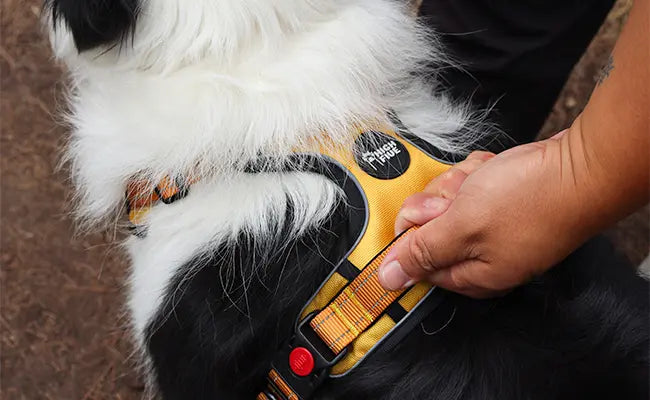
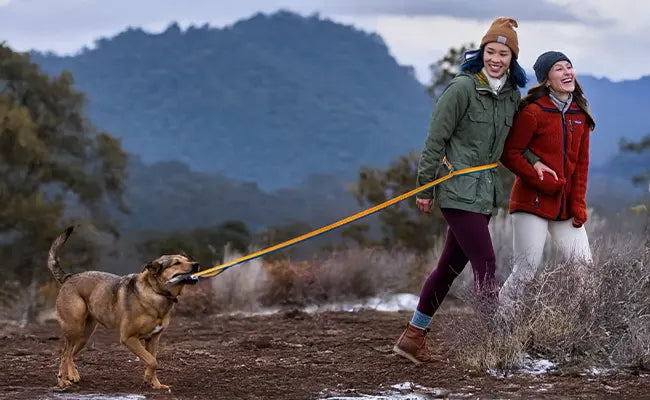

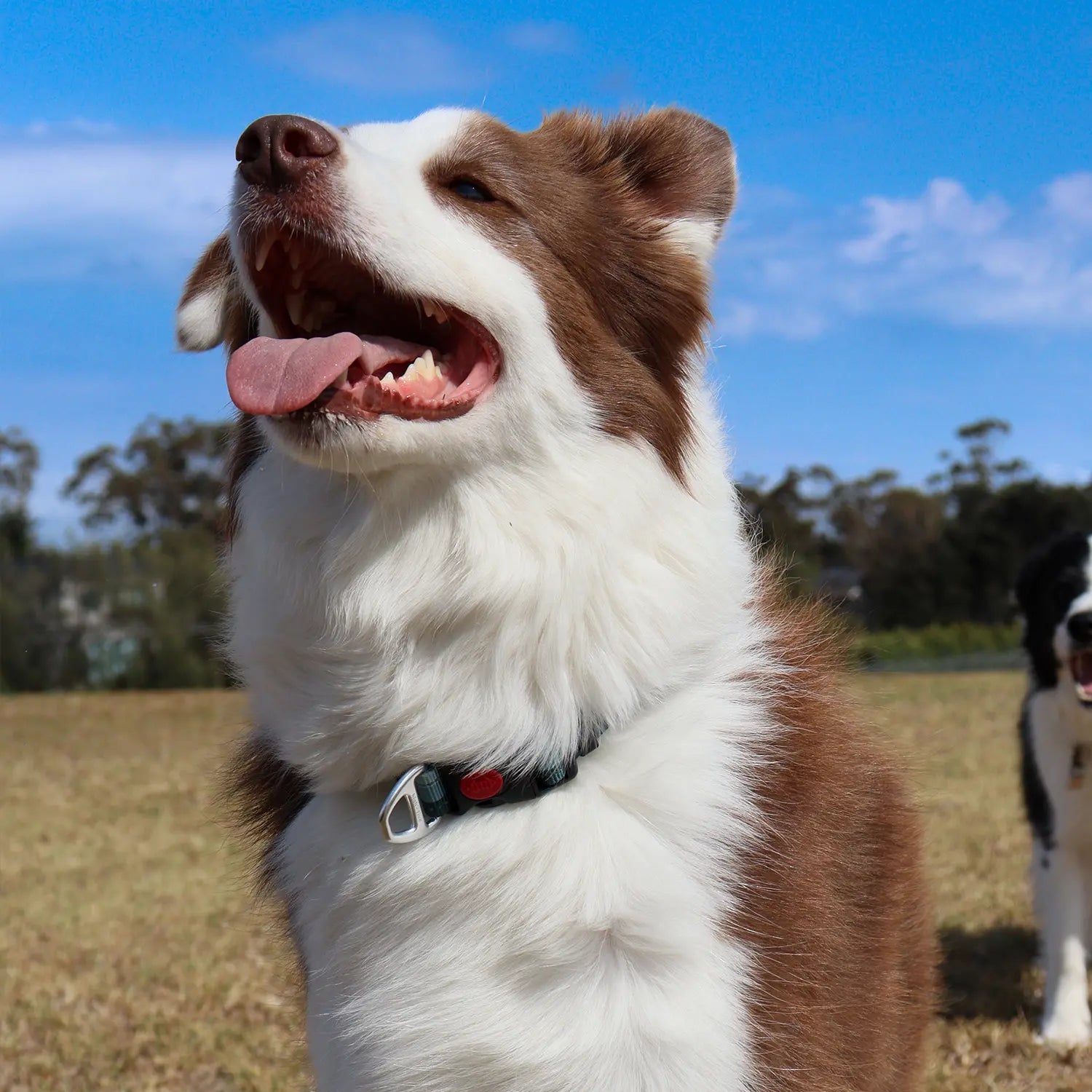
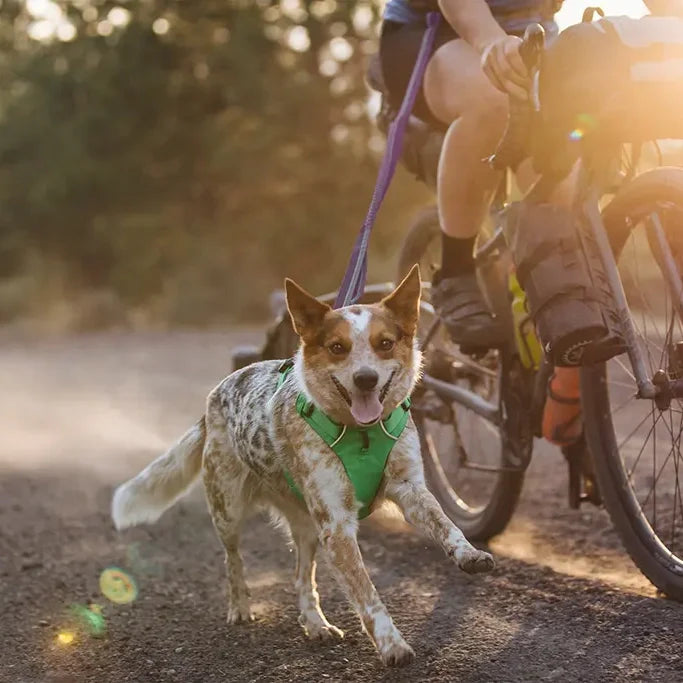

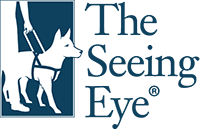


Leave a comment
This site is protected by hCaptcha and the hCaptcha Privacy Policy and Terms of Service apply.